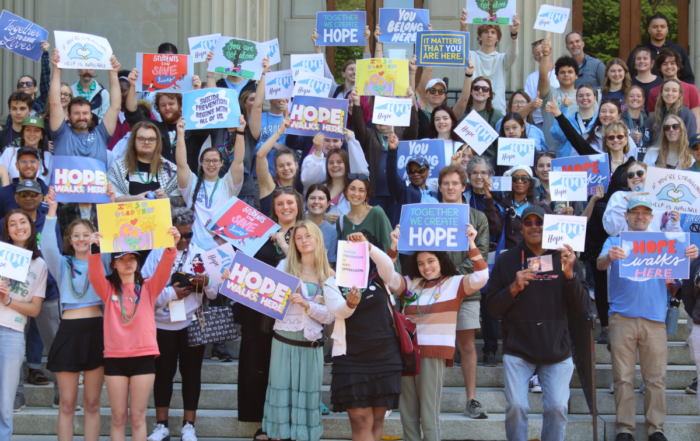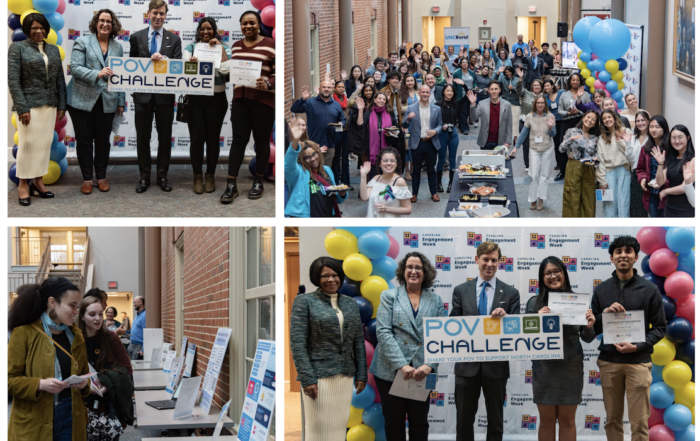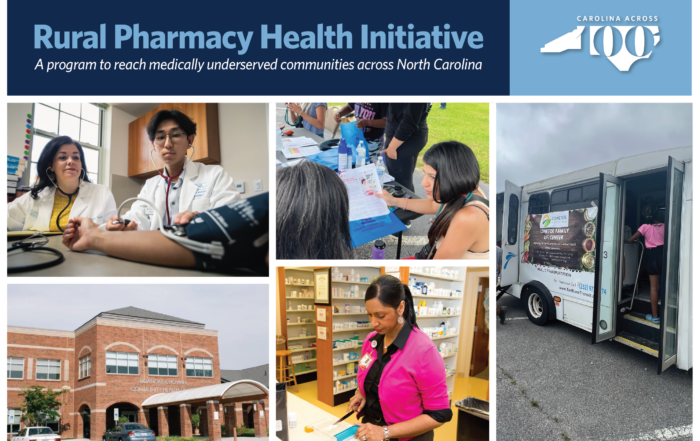Data
Listening and Learning: New Data Will Inform Carolina Across 100 Program Launch
Jess Dorrance, Evan Johnson, and Natalie Short
December 13, 2021

North Carolinians, like so many others across the country and the world, have suffered staggering losses during the COVID-19 pandemic. In addition to the incalculable loss of life, individuals and communities have also faced losses in jobs and businesses and experienced disruptions in healthcare, childcare, housing stability, food security, and in-person education. The impacts are significant and complex, and the ultimate toll is difficult to predict.
The State has always supported this campus, and the University of North Carolina at Chapel Hill is stepping up to partner with communities in ongoing recovery and resilience-building efforts. The launch of Carolina Across 100, a five-year initiative charged by UNC Chancellor Kevin Guskiewicz and led by UNC School of Government professor Anita Brown-Graham, will exemplify the University’s mission to “enhance the quality of life for all people in the State.”
The initiative will form meaningful partnerships with communities in all one hundred North Carolina counties to respond to challenges stemming from or exacerbated by COVID-19. The University will co-create solutions with communities to address some of their most pressing needs by providing financial resources, data insights, coaching, facilitation and coordination efforts, and program design support.
Listening First
Our Community Listening Survey was conducted in September 2021, primarily targeting leaders in the public, private, and not-for-profit sectors to gauge the impact of COVID-19 on their organizations and in their communities. The response was overwhelming. We heard from over 4,000 people, resulting in just over 3,200 usable surveys. This includes input from individuals living in, working in, and serving all 100 North Carolina counties. In-depth interviews with a diverse range of over 60 stakeholders added nuance and depth to our survey findings. Learn more about our process.

Insights to guide impact
Our data analysis uncovered deep and lingering concerns about the long-term impacts of COVID-19 on communities. Over 90% of respondents agreed that the pandemic will have long-term effects. Most respondents (71%) also expect that the greatest impacts from COVID-19 are still to come; less than one-third of individuals reported that they thought the worst of the pandemic was behind us.
Specifically, respondents’ top concerns included employment instability, the loss of small businesses, and educational disruptions. These issues also ranked among the highest when respondents were asked about the challenges that would have the longest-term impacts on their communities.
Other areas of concern for our respondents were the risk of business closures generally, housing instability, childcare availability, along with significant loss of life due to COVID and political and social divisiveness. Further, these high-level concerns are remarkably consistent across regions of the state, despite differences in local economies or educational systems.
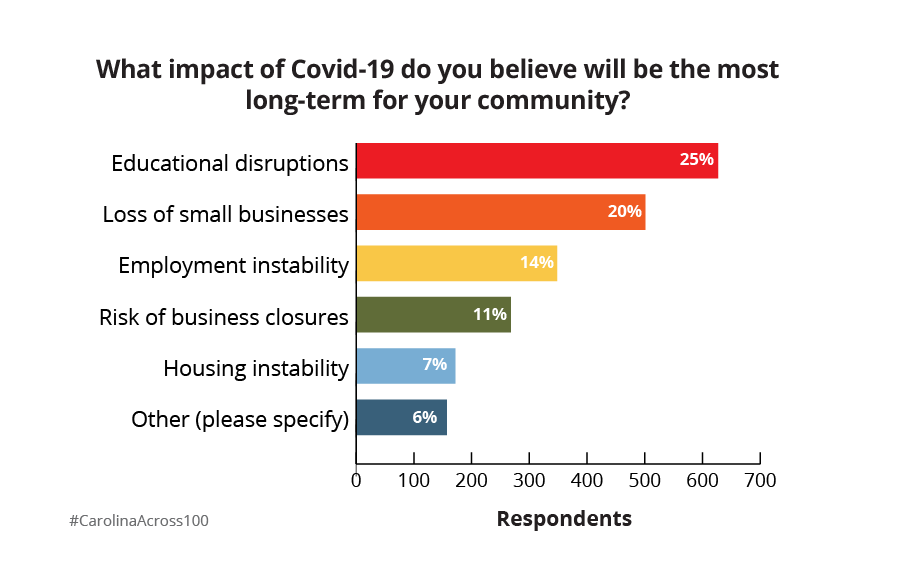
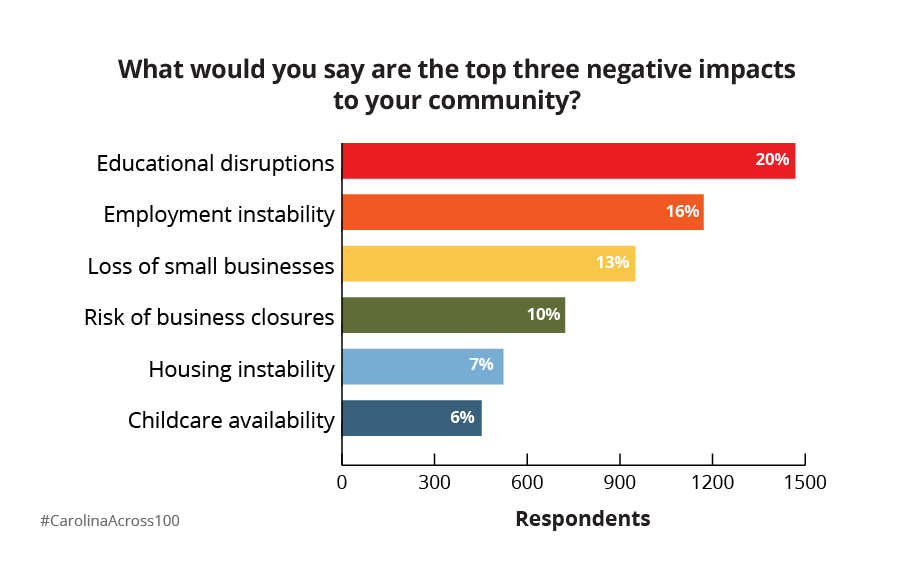
In addition to a focus on community impacts, our survey asked a series of questions about the effects of the pandemic on respondents’ organizations. Our findings clearly point to significant concerns about employees and the workforce (39%). Chief among these was staff burnout, though other concerns, such as early retirements and staff absences due to COVID-19 illness, were also mentioned. Disruptions from virtual work or working from home, and an increased need for mental health support for employees were also identified as long-term challenges. Other areas of concern were operational and supply chain disruptions (14%) and cost-related issues (13%), and another eleven percent (11%) of respondents felt it was too soon to tell what the longest-term impacts would be for organizations and businesses.

Same Storm, Different Boats
No one has been spared from the wide-ranging effects of the pandemic. Some populations, however, have been disproportionately impacted. Older adults, particularly those in congregate settings such as assisted living facilities, as well as individuals with certain diseases and illnesses, have often suffered the most severe health effects. Additionally, healthcare and frontline workers, who have more exposure to potential spread of COVID, have also faced greater risks. The impacts of the pandemic are certainly not limited to physical health alone. For myriad reasons, parents, low-wage workers, communities of color, and those already facing issues of housing and/or food security, have a borne significant brunt of COVID’s negative effects. According to our survey respondents, working-class individuals, people of color, and mothers have all been most deeply affected by COVID.
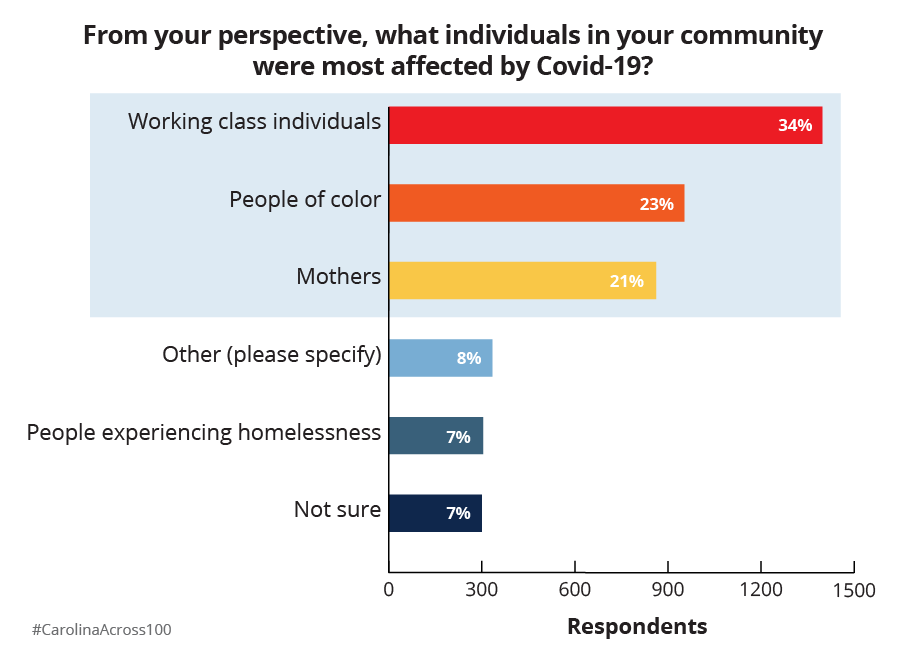
Through in-depth conversations with individuals across North Carolina, the Carolina Across 100 team has gained a deeper understanding of the breadth and depth of key community challenges, as well as potential opportunities for intervention and effective action. That data makes clear that a sense of hopefulness, connection, desire to bridge gaps across political, social, and racial divides, and motivation to make the devastation of the pandemic a turning point toward positive change all run deeply through the hearts and minds of North Carolinians. One respondent from Watauga County stated, “…we are all in the same storm, but we are in different boats…” and emphasized the need to listen to one another and find opportunities for dialogue. Another shared, “I think compassion for where people are coming from will be key to all of us moving forward together.”
As the Carolina Across 100 initiative moves forward into the next phase and begins the real work with communities guiding the way, there is reason to be optimistic about what can be accomplished through community/campus collaborations. The task is daunting and there will be no singular solution, but the possibility of chipping away at complicated and long-running issues that enable communities to emerge from the pandemic stronger, more equitable, and more resilient is one hundred percent worth the effort.
Be the first to know when the first Carolina Across 100 program is announced in early 2022. Sign up to receive emails offering more data, program details, invitations to participate, and resources to share.


